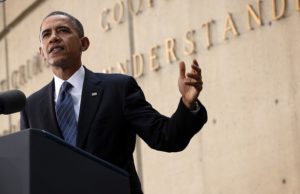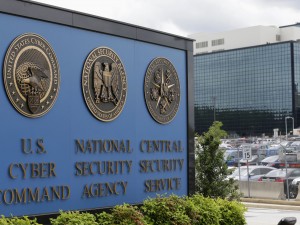
The government says a review of the National Security Agency’s operations in court is risky and could jeopardize the country’s security.
“Disclosure of this still-classified information regarding the scope and operational details of NSA intelligence activities implicated by plaintiffs’ allegations could be expected to cause extremely grave damage to the national security of the United States,” James R. Clapper Jr., the director of national intelligence, wrote.
Clapper said he was continuing to assert the state secrets privilege, which allows the government to seek to block information from being used in court even if that means the case must be dismissed. The Justice Department wants the judge to dismiss the matter without ruling on whether the programs violated the First or Fourth Amendment, according to the New York Times.
The plaintiffs in the case, which includes the Electronic Freedom Foundation, have until the end of January to respond to the filing but the legal director of the EFF, Cindy Cohn, called it “outrageous.”
“The government seems to be trying to reset the clock to before June 2013 or even December 2005,” Cohn said in a statement. “But the American people know that their communications are being swept up by the government under various NSA programs. The government’s attempt to block true judicial review of its mass, untargeted collection of content and metadata by pretending that the basic facts about how the spying affects the American people are still secret is both outrageous and disappointing.”
Last week, one federal judge has ruled that the NSA’s data collection activities are likely unconstitutional. U.S. District Judge Richard Leon said that the bulk collection of phone records “certainly does violate a reasonable expectation of privacy.”
Meanwhile, Obama’s advisory committee on signals intelligence says that there was great value in the agency’s ability to collect certain data without warrants.
Former acting director of the Central Intelligence Agency, Michael J. Morrell, argued that although a panel of independent experts failed to find any substantial evidence that the NSA’s efforts have prevented a terrorist attack in the past, it doesn’t mean the NSA can’t use that information to prevent terrorist attacks in the future.

“We think that better protects privacy and civil liberties while at the same time allowing the government to do what it needs to do to protect the country,” Morell said on Sunday’s CBS’s “Face the Nation.”
The recommendation would mean that the government would no longer hold any of the collected data, such as call logs, until it has successfully obtained a warrant from the courts to do so. In the meantime, telephone companies will be the holders of the information to create a buffer between the privacy of Americans and the government’s possession.
The Obama administration, on the other hand, claims that there has been no abuse in the collection of this data in the past and therefore new restrictions shouldn’t be placed on the government.
Mike Rogers, a Republican representative from Michigan who leads the House Intelligence Committee, argued on Friday that granting a third party the right to keep and collect call logs would only continue to put state secrets at risk and poses a bigger threat to citizens’ privacy.
“I’m reluctant, because I think it opens up to more privacy violations when the companies hold it,” Rogers told ABC’s “This Week.” “They don’t have somebody directly controlling that information. That’s not their job.”
Senator Patrick J. Leahy, a Democrat from Vermont, agrees with the recommendation that a third party hold information, especially after the government failed to protect key data from former NSA subcontractor Edward Snowden.
Other politicians, such as Peter King of New York, a Republican representative and member of the House Homeland Security Committee, argue that Snowden is merely creating “a debate generated by hysteria.”


